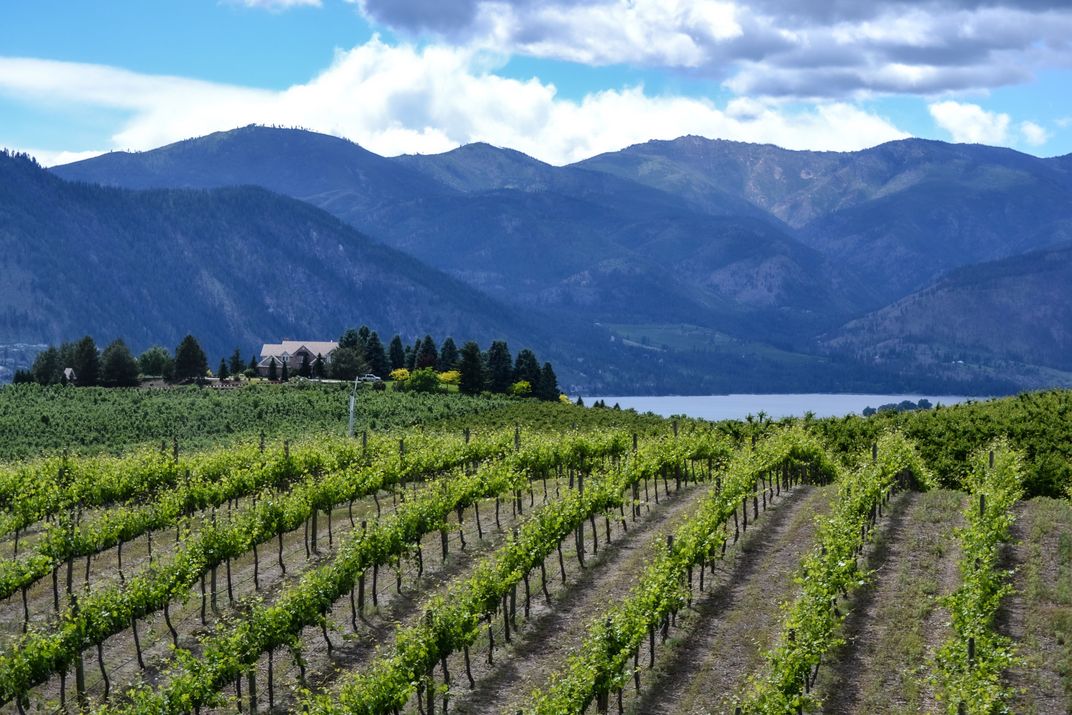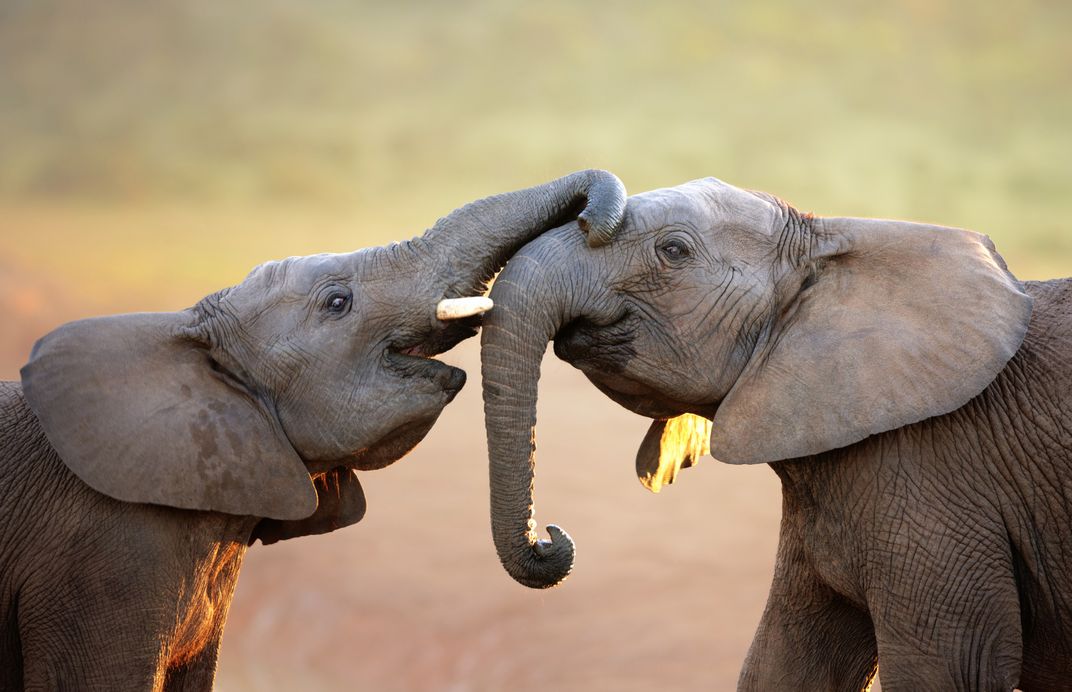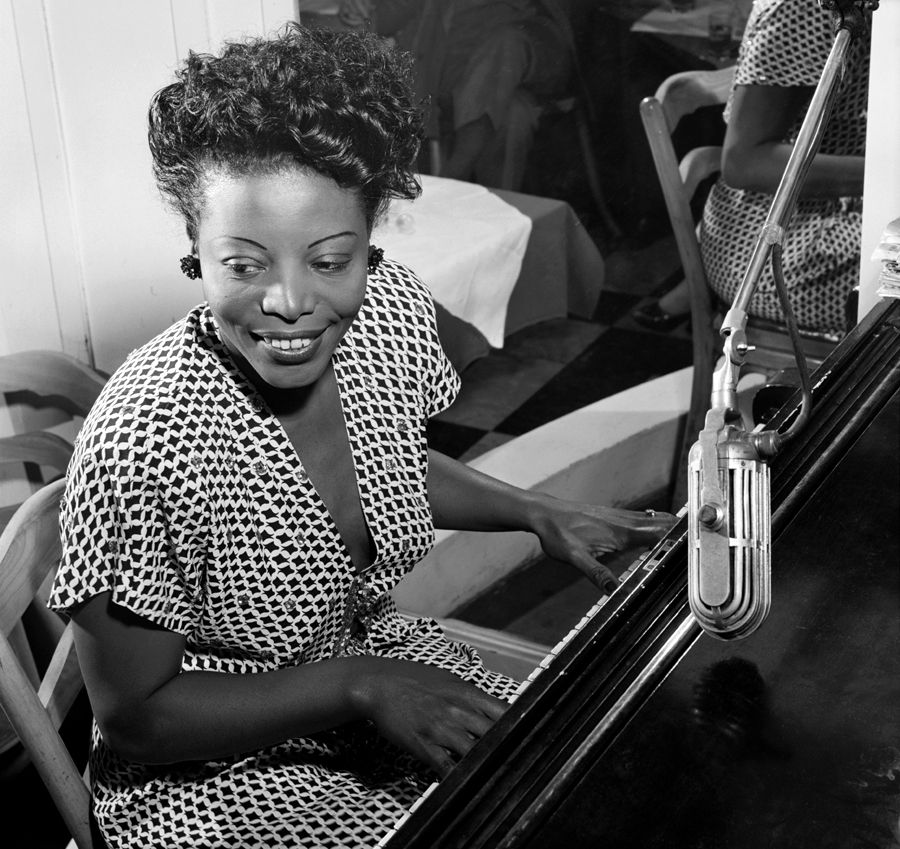Theodore Roosevelt’s North Dakota and 27 Other Smithsonian Programs Streaming in March
Smithsonian Associates Streaming continues through March with individual programs, multi-part courses, studio arts classes and virtual study tours produced by the world’s largest museum-based educational program.
/https://tf-cmsv2-smithsonianmag-media.s3.amazonaws.com/blogging/featured/c-TR_ND_park_panorama.jpg)
Smithsonian Associates Streaming continues through March with individual programs, multi-part courses, studio arts classes and virtual study tours produced by the world’s largest museum-based educational program.
Monday, March 1
A History of the British Monarchy: Early Legends to Modern Monarchs: The British monarchy has outlasted most of its European counterparts, adapting to changing times and managing to maintain enough popularity to survive for more than a thousand years. Tudor scholar Carol Ann Lloyd-Stanger traces a path through the lives and times of the kings and queens who have ruled England, then Great Britain and finally the United Kingdom to examine how the monarchy has endured from the days of King Arthur to today. 12 p.m. $85-$95
Tuesday, March 2
Great Monuments of the Ancient World: Acropolis: Each of the more than 1,100 UNESCO World Heritage Sites offers a fascinating glimpse into the evolution of complex civilizations, empires and religions. Some, however, are more iconic than others. Historian Justin M. Jacobs offers an in-depth overview of four of the most significant ancient sites in Egypt, Persia, Greece and Mesoamerica. This session focuses on Acropolis. 6:45 p.m. $25
Wednesday, March 3
Impressionist Muses: The Women Who Inspired Manet, Monet, Renoir, Degas, and Cassatt: For many of the impressionists, women were not simply passive models but essential partners, collaborators, muses—and sometimes lovers and wives. Art historian Natasha Schlesinger looks at five fascinating women who inspired portraits created by Renoir, Monet, Degas, Manet, and Cassatt. Smithsonian World Art History Certificate enrollees receive 1/2 credit. 6:45 p.m. $20-$25
Thursday, March 4
Tom Stoppard: A Life: Tom Stoppard is a towering and beloved literary figure known for his dizzying narrative inventiveness and intense attention to language. Hermione Lee discusses her new biography of one of our greatest living playwrights with longtime Stoppard collaborator Carey Perloff in a fascinating examination of his work and a riveting look at the life a remarkable man. 5 p.m. $20-$55
Theodore Roosevelt's North Dakota: Badlands, Bison, and the Making of a Conservationist: The Badlands of North Dakota transformed Theodore Roosevelt over the course of more than three decades, reinventing himself into the kind of vigorous outdoorsman he’d idealized as a youth—and that shaped his public image as president and a passionate conservationist. Roosevelt scholar and historian Clay Jenkinson tells the story that brings you into the heart of Roosevelt’s beloved west and the national park that bears his name. 8 p.m. $25-$30

Friday, March 5
Washington-State Wines From Women Makers: A Top Sommelier's Guide: World-class additions to any wine cellar, some of Washington’s most powerful and amazing wines are being brought to life by equally powerful and amazing women. In a guided tasting led by top sommelier Erik Segelbaum, discover some of the state’s best wines produced by women winemakers. 6 p.m. $65-$75
Saturday, March 6
Native Orchids: Join an orchid-care expert for a fun, informative afternoon about the native orchids that grow in the northeastern United States, where to find them in nature and how to grow hardy orchids in your backyard. 2 p.m. $30-$40
Sunday, March 7
Artists from the Kennedy Center Honors: Film Heroes Then and Now: In a 2-session series, join Sara Lukinson, a longtime filmmaker and writer for the Kennedy Center Honors, as she looks at the lives and careers of some performing arts legends and explores what made the work of these actors and musicians so moving, memorable and exciting. This session focuses on film heroes. 3 p.m. $20-$25
Wednesday, March 10
Photo 101: Apertures, Shutter Speeds, and Exposure Modes: Take command of your photographic vision as you learn the basics of your camera’s exposure functions. Learn to control the properties of your images through the understanding of apertures, shutter speeds, depth of field, shutter motion effects, equivalent exposures and exposure modes. 6:30 p.m. $45-$55
Thursday, March 11
Icebound: Shipwrecked at the Edge of the World: For 16th-century Dutch explorer William Barents, larger-than-life ambitions and an obsessive quest to chart a path through the deepest, most remote regions of the Arctic ended in both tragedy and glory. Drawing on her new book Icebound, journalist Andrea Pitzer shares this gripping tale of survival in a conversation with wildlife biologist and author Jonathan C. Slaght. 6:45 p.m. $20-$25
Friday, March 12
Botticelli: Visual Poet of the Renaissance: Sandro Botticelli’s art captures the shift from a mystical, symbolic medieval worldview to the more humanist ideals of the Early Renaissance. Art historian Elaine Ruffolo traces the life and times of this Florentine master from his rise as painter to the Medici bankers to his downfall as a devoted follower of fiery Savonarola. Smithsonian World Art History Certificate enrollees receive 1/2 credit. 12 p.m. $20-$25
Saturday, March 13
Log Cabin Building Blocks: In quilting, the traditional Log Cabin block offers a wonderful framework for exploring color and value contrast—and for spontaneous piecing. Learn this technique, then finish ten blocks into a table runner. 10:30 a.m. $55-$75
Monday, March 15
Marie Antoinette at Versailles: Life, Art and Myth: Over the centuries, the dramatic life of Marie Antoinette has continued to fascinate. Decorative arts historian Stefanie Walker appraises Marie-Antoinette’s cultural legacy—and why the myths about her are so enduring. 6:30 p.m. $20-$25
Tuesday, March 16
Neuroscience and Art: A Creative Connection: Merge recent findings on visual perception with familiar elements of art to discover how your paintings can take on new and fresh creative edges. 2 p.m. $75-$95
Wednesday, March 17
American TV in the 1950s: A Medium's "Golden Age": In the years after World War II, television blossomed as a creative medium, with live dramatic shows like “Kraft Television Theater” and “Playhouse 90” showcasing the talents of soon-to-be-famous performers, directors and writers. But this golden age was a short one, as was New York City’s dominance as a center of production. Brian Rose, professor emeritus at Fordham University, explores the forces behind the demise. 12 p.m. $20-$25
The Future of Humanity in Space: Look to the space-traveling future as Michael Summers, a professor of physics and astronomy at George Mason University, explores how the use of space resources could propel human colonization throughout the solar system in the coming decades and beyond. 6:45 p.m. $20-$25
Thursday, March 18
Animal Communication: Do you think your dog talks to you? Arik Kershenbaum, a zoologist at the University of Cambridge, explores the nature of how animals communicate and whether we’ll ever be able to understand what they’re saying—or if they are saying anything at all. 12 p.m. $20-$25
Friday, March 19
A Fiddler on the Roof: The Art of Chagall: Art historian Joseph Cassar explores the work of Marc Chagall whose oeuvre—whimsical, colorful and populated with images from the stories of his native Russian culture—is both emotionally and poetically dream-based. Smithsonian World Art History Certificate enrollees receive 1/2 credit. 12 p.m. $20-$25
Saturday, March 20
France During World War II: Occupation and Resistance: The world was stunned when, in the spring of 1940, Germany invaded and quickly defeated France. Ronald C. Rosbottom, a scholar of French and European history, examines why knowing more about the impact of both occupation and resistance during WWII helps us understand aspects of France’s present political and diplomatic environment. 9:30 a.m. $80-$90
Monday, March 22
Nicholas Winton: Britain's Schindler: Young British stockbroker Nicholas Winton's split-second decision to save as many Jewish children as possible from the Nazis remained a secret for nearly 50 years. Historian Ralph Nurnberger highlights the story of this ordinary but remarkable man who was knighted for his efforts. 6:30 p.m. $20-$25
The Pacific Ring of Fire: A Geologic Overview: The Pacific Ocean’s Ring of Fire is a vast horseshoe-shaped basin that sweeps over nearly 25,000 miles and is marked by relentless tectonic movements that drive earthquake and volcanic activity in hot spots such as Peru, New Zealand, Japan and Alaska. Join volcanologist Kirt Kempter for a detailed introduction to one of planet’s most volatile regions. 7 p.m. $25-$30

Tuesday, March 23
The Flavors of Charleston: Signature Foods, Recipes and Their Stories: Join Chef Kevin Mitchell and historian David S. Shields for a delicious dive into the culinary specialties of the Charleston region, which include the famous rice and seafood dishes of the Low Country. Cook along as the chef demonstrates one of the region’s signatures dishes: Hoppin’ John. 6:45 p.m. $20-$25
Wednesday, March 24
Understanding Contemporary Art: From Pop to Pluralism: In this richly illustrated seminar, art historian Nancy G. Heller looks at the roots and later influences of radical American art from the last five decades, from pop and minimalism to the influence of identity politics. Smithsonian World Art History Certificate enrollees receive 1 credit. 12 p.m. $85-$95
Charlie Willis: An Aviator's Daring Life of Risk and Re-invention: From a highly decorated WWII combat aviator to the head of a gonzo air cargo company to the president of Alaska Airlines—and with a dive into politics along the way—Charles Fountain “Whiskey” Willis lived an adventure of constant re-invention. Aviation historian Paul Glenshaw recounts the tale of how a scrappy upstart who ignored rules, risk, precedent, and protocol shaped a remarkable career. 6:45 p.m. $20-$25
Thursday, March 25
The River That Made Paris: The Seine flows through every aspect of daily life in Paris. Longtime New York Times foreign correspondent Elaine Sciolino leads a fascinating journey through its history and its myriad reflections in art, literature, music, and film, revealing how this fabled river defines and shapes the essence of a great city. 12 p.m. $20-$25

Saturday, March 27
Forgotten No More: Rediscovering Remarkable Women: From a Dutch artist’s workshop and a Frankfurt classroom in the 17th century to the streets of Washington in the early 1900s to musical stages today, women have been making strides in their fields that have often been overlooked, uncredited, or forgotten by time. Celebrate Women’s History Month by spending a fascinating day with four experts who bring to light an array of remarkable women who have lived in the shadows of history far too long. 10 a.m. $80-$90
Tuesday, March 30
Italian Renaissance Art: Rocky Ruggiero, a specialist in the Early Renaissance, explores some of the great masterworks of art and architecture created from the late-14th to the 16th centuries as he examines the intellectual trends and social context that gave rise to such giants as Giotto, Botticelli, and Michelangelo. Smithsonian World Art History Certificate enrollees receive 1 credit. 6:45 p.m. $80-$90
Wednesday, March 31
Artisanal Bread Making: Innovation Is on the Rise: What’s in store for bread making? Find out when a panel of top bakers mix it up in a conversation that spans traditional and new methods of sourcing ingredients to trends in the baking process itself. 6:45 p.m. $20-$25
To view Smithsonian Associates digital program guide, visit www.smithsonianassociates.org.
